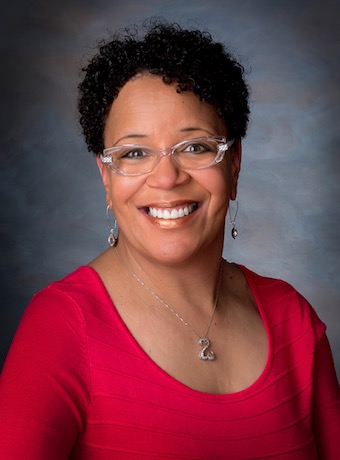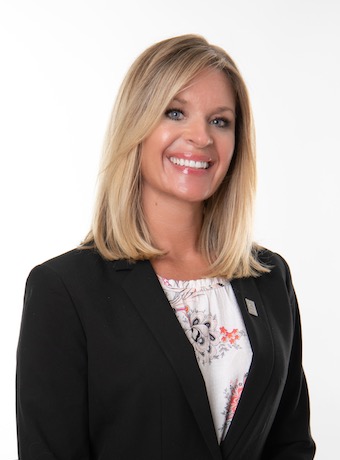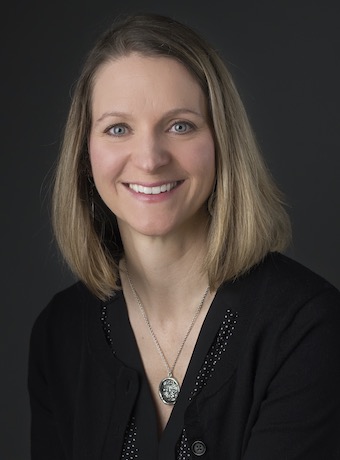10 minutes
Career development resources and a flexible, empathetic culture are the first steps toward getting women in the workforce back on the track toward success.
Over the past year, the COVID-19 pandemic has caused many women to drop out of the workforce. Some were furloughed or laid off, while others left because of increased childcare responsibilities with the closing of schools or due to burnout trying to balance the impact of a global health crisis with their family’s health and finances. According to a 2020 Women in the Workplace study authored by McKinsey and LeanIn.org, one in four women contemplated downshifting their careers or leaving the workforce because of the pandemic.
This challenging time that everybody in the world is collectively enduring has stalled recent progress women have made in terms of career trajectory, pay and representation in the workplace. And these troubling statistics point to a greater need to better support women’s development and staying power in the workforce—or risk losing more colleagues, associates, women in leadership and future leaders.
So how can credit unions make sure that this population that makes up almost half of the workforce is supported, such that they can continue to offer their talents and skills to the industry? We first have to ask ourselves whether the environment is conducive to women in the workplace and become aware of any gaps.
Awareness
CUES member Kelli Ellsworth Etchison, CMO/chief diversity officer at $950 million LAFCU, Lansing, Michigan, states, “First, you have to admit there is even an issue. Then, you go about being very intentional about changing, about evolving. People may get uncomfortable, but when they go back and begin to get introspective, then the forward motion can start to happen.”

CUESolutions provider CUNA Mutual Group, based in Madison, Wisconsin, is taking steps to build awareness is by putting measures in place to track the percentage of women in certain positions versus men and capturing employee feedback about how this action supports them. Laurie Winger, chief financial officer, says that by placing a focus on this topic and making it a regular conversation, CUNA Mutual Group has seen progress in closing the gap. By collecting and reviewing relevant data, the company is able to get a broader perspective, and the impact of the policy has been significant.
“We think it’s important to recognize that by segmenting employee metrics by groups such as gender, we can identify trends and insights that would be invisible if we only looked at the enterprise as a whole,” says Winger. “That gives us much more insight into how policies might impact specific groups.”
While many women have been dropping out of the workforce at higher rates than men during the COVID-19 crisis, CUNA Mutual Group is not seeing this pattern with its female employees. There is value in taking an active approach to support women in the workplace.
“We believe culture is a key differentiator,” Winger notes. “This has been especially impactful during the pandemic, as we have intentionally been ‘employee first’ in our approach and communications, including how we support our women leaders as they navigate complexity at work and at home. That’s evident in groups like our Women’s Leadership network or Women’s Executive Leadership Institute, where women are able to proactively support each other and build connections.”
Support
Women face unique challenges that often change as we move through various life stages, including early career, motherhood and other big home-life changes, middle career and later career into retirement.
“To navigate a successful career, one will have to make quite a few choices that might not always be convenient or make everybody happy,” says CUES member Alison Hoskins, CCE, CEO of $771 million Integris Credit Union in Prince George, British Columbia. “As I’m making choices, I often ask myself, ‘What is the no attached to this yes?’ Sometimes the sacrifices in my yes’s aren’t always things I’m happy to say no to, but as long as, more often than not, they are, I can find balance in the whole. One choice might not make you happy, and another choice might not make your employer happy. It’s not always convenient to make a sacrifice.”
Women just starting out in their careers might look to others for comparison with their own career trajectory. And oftentimes, in today’s internet and Instagram obsessed culture, it’s hard to avoid such comparison while scrolling through social media and seeing others’ highlight reels. But the truth is that, despite the rosy picture our peers and role models paint on social media, it’s not always easy and there are, of course, struggles along the way. But we don’t have to walk the career path alone. There are resources and support systems out there to leverage—it’s just a matter of putting oneself out there.
Hoskins highlights the importance of transparency and authenticity in her career trajectory. She did not try to hide when there were challenges, which may be something women tend to do when things get hard. Instead, she suggests, “Get the support you need. Be very open.”
Etchison offers similar advice to women at the beginning of their careers and beyond: “As women, we have to go after it. We have to be our own best lobbyist and our best advocate.”
Coaching and Mentorship
Mentoring and personal coaching have been significant support systems for many top executives as they built and navigated their careers. Winger has had the opportunity to work with a few different coaches throughout her career, including an executive coach whose firm is focused on helping women in leadership specialized in product management. It was a huge benefit that the coach was also a woman, because she shared similar experiences with Winger and could offer insight into how to navigate challenging workplace situations with grace.
Hoskins has also made use of personal coaching throughout her career. She has found that this extra support helped her home in on her own personal values and stand by the choices that were right for her. In the particularly challenging life stage of motherhood, Hoskins was navigating the complicated balance of being expected, as a woman, to lean into work opportunities, while also knowing that time with family is finite. By working with a coach, she gained greater confidence that the decisions she was making were the right move for her.
At $3.8 billion SAFE Credit Union, based in Folsom, California, current and emerging leaders within the organization are encouraged and offered opportunities to develop their leadership skills through a variety of programs for development, such as tuition reimbursement, internal and external training, personality assessments like DiSC and Meyers-Briggs, informal mentorships, temporary assignments and the potential for internal/external coaching. Colleen Nerius, SPHR, chief human resources officer at SAFE CU, explains, “The value of having a variety of programs to develop leadership skills and competencies provides employees with opportunities to advance and grow within the organization. Our employees are SAFE’s most important asset, and we want to take care of them to retain that talent.”

For those just starting their careers and perhaps not yet ready to jump into coaching or those who lack access to such a resource, informal or ad hoc mentors—individuals who perhaps don’t commit time to dedicated mentoring but are still willing to provide guidance when asked—can be an extremely valuable and beneficial resource. But formal mentorship programs can be a useful policy for credit unions to offer their employees as it is often a mutual benefit to both the mentor and the mentee.
“Seeking out mentors is a very helpful resource,” says Etchison. “Reach out into your network to see who’s been doing this longer than you. Look for people who have something you don’t have and who’s been doing the work for a while. Don’t be afraid to ask for help.” Etchison herself also loves to mentor and believes others do as well: “It grows into a beautiful friendship. Everything in our lives is relational.”
Motherhood
Becoming a parent is a challenging period that arises most visibly and obviously for women. There are so many life-altering changes that occur during this life stage that demand a lot of a mother’s time and energy, specifically.
In the not-so-distant past, it wasn’t always easy to take time off for maternity leave. When Winger was a new mother, it was not out of the ordinary for women to have to save up vacation days and sick leave in order to be able to spend the first months after their child is born at home. And at the same, the expectation of a male employee taking paternity leave was unheard of. Nowadays, maternity policies have generally changed for the better, giving women time to stay at home and bond with the baby, as well as flexibility with scheduling and returning to the workplace, or phasing back if necessary—though, unfortunately, not all women have experienced such increased support in the U.S.
That said, motherhood doesn’t end after giving birth. For women in single-mother households or traditional households where women bear the greater responsibility for childcare, networking events during non-work hours can be a significant barrier, Hoskins notes. Organizations often hold events—galas, conferences, breakfasts and other in-person meetings including meals—that are presented as perks but are also necessary networking opportunities for career progression. Such events can be a challenge for mothers to attend when they are also responsible for meals at home.
Hoskins has found that the recent pandemic-driven transition to supporting learning, growth and connection through virtual platforms has been a huge win for women balancing both career and family. “The ability to connect and build relationships in a virtual environment can break down these barriers,” she says.
Company Culture
Despite the positive trend toward virtual networking, the COVID-19 pandemic has brought to light how difficult it is to have a full-time job and children at home. Many working mothers are feeling the pressure from both sides, as many schools only recently began to reopen before summer break. But Nerius says that at SAFE CU, the culture of support and empathy has been enhanced and more at the forefront of leaders’ minds because of the pandemic.
CUNA Mutual Group has also observed a change in culture and leadership mindset over the years. In fact, company culture has evolved such that employees now call it the CUNA Mutual Family. Eric Nelson, communications strategist at CUNA Mutual Group, says, “There is a lot of understanding and balance, where showing up as the true self, as the whole self, is something that is strived for.”

This idea of modern leadership recognizing that employees are whole people and allowing them space to be their whole selves at work hasn’t always existed. “There’s been a cultural shift where at work, we are more effective if we have jobs that line up with core values and the organization supports whole health,” says Hoskins, “It’s a huge change in recognizing that it’s no longer a weakness to show whole lives. It’s more of a positive attribute to be willing to be open.”
To help grow a supportive company culture at the grass-roots level, SAFE CU has launched employee resource groups that are formed and run completely by employees. ERGs are focused on a particular commonality, whether it be gender, race/ethnicity or a cultural affinity, and they hold programming to support and inform group members. The women’s ERG hosts panel interviews with key female leaders within the organization, sends out a weekly newsletter, holds meetings and more.
“Many females at SAFE say [the ERG] has been meaningful and impactful, allowing them to connect with other women in the workplace,” says Nerius. “The organization wants them to be their authentic selves, to not have to hide. It’s OK to be who you are at SAFE.”
More and more organizations are turning towards such policies today—policies that promote inclusivity, flexibility and acknowledgement of the whole person, including their lives outside of work. Hoskins shares an apt metaphor for the key to balancing work and kids that her child first shared with her on Instagram: “Know that some of the balls you have in the air are made of glass and some are made of plastic. If you drop a plastic ball, no harm done. If you drop a glass ball, it shatters. … Think about which tasks on your plate are glass balls and which ones are plastic, and make sure you catch the right ones.” cues icon
Annette Kim is a writer and world traveler currently based in Zihuatanejo, Mexico, where she is learning Spanish and surfing.





